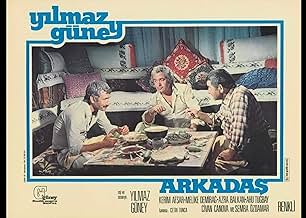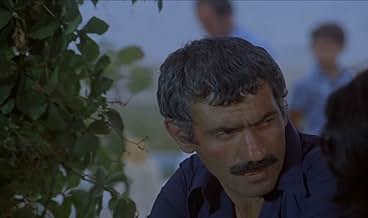Cemil (Kerim Afsar), originally from a Turkish village, has achieved career success and joined the bourgeoisie. Now he can enjoy the fruits of his labor by the seaside - swimming, drinking, eating, and playing cards. His childhood friend Azem (Yilmaz Guney) has followed a completely different path, remaining close to his roots and sustaining a political consciousness. Azem comes to visit Cemil by the seaside, and soon discovers how worthless bourgeois life actually is. Eventually Azem takes Cemil back to his village in an attempt to make him understand what is really important in life; however, the experience proves too much for Cemil. Although made nearly forty years ago, ARKADAS has some trenchant points to make about capitalism in the Turkish Republic as well as elsewhere; its obsession with materialism, its utter disregard of basic moralities such as fidelity and/or politeness, and its basic self-interest. It creates a society based on inequality in which the rich get richer and the poor poorer. Guney turns in a penetrating performance as Azem; the camera focuses on his expressionless face as he watches Cemil and his family openly flirting with one another and laughing meaninglessly at the tiniest thing. Kerim Afsar overacts slightly as Cemil, but his rather showy performance is offset by Azra Balkan (playing Cemil's worthless wife Necibe), and Melike Demirag (as Melike, Cemil's sister-in-law, a teenager who hates bourgeois life as much as Azem, but remains powerless to do anything about it). Filmed in garish color - an appropriate style for such a critical film - ARKADAS is well worth watching.









